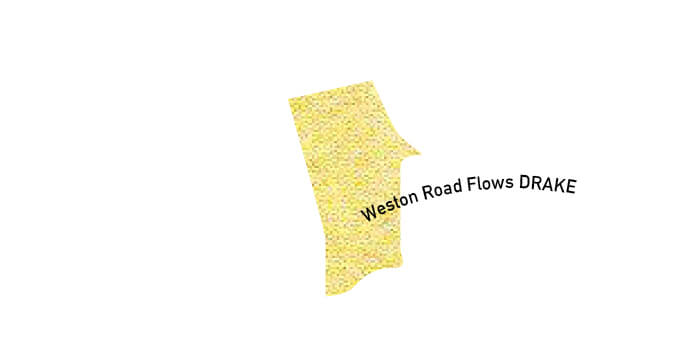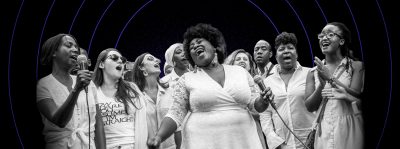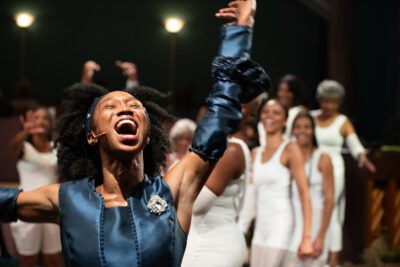Musical Map Of The USA: Rhode Island—Drake


Winter in Rhode Island doesn’t give a fuck if this is your first New England winter and you’re a southerner who (admittedly) can’t fucking deal. It’s a Monday in February, and I see a snowflake so big it reminds me of the fake ones we used to make in my fourth grade art class in rural Mississippi. We would fold crisp sheets of white paper into rectangles and cut triangles into the sides. But cutting snowflakes was more than just southern escapist origami, it was, in fact, a common thing we did beneath tables during tornadoes or torrential downpours of rain and hail. A subtle response to crisis–to things that made us feel helpless, like inclement weather. Not unlike quilting or knitting or smoking bogies. My mom did all three.
But this is a real snowflake, and this is my first winter in Rhode Island, where I’ve come to teach English at an inner city high school in Providence. It’s my free period and I’m standing in the open lot across from my school where I come to chain smoke Marlboros to soothe my nerves. Today, three seabirds flap at each other, squawking furiously over discarded pizza crusts. I can’t help but notice how out of place we seem. Like, shouldn’t we all be in the South right now? I’m thinking this as the wind whips blankets of snow at my body, whistling as it does. The birds and I scatter. Winter in Rhode Island doesn’t give a fuck.
***
In Rhode Island, it’s not my mother’s quilting or knitting that I turn to when I need desperately to feel anchored–though I borrowed the cigs thing. It’s what I’ve inherited from my classically-trained pianist father that I burrow into. When he took me to the airport last summer, on my way to leave Mississippi to live in the cold, cruel north, he gave me a stack of cds as a parting gift. He handed them over, reminding me once more that he gave up a gig with David Bowie back in the 80’s because I was about to be born–a story I’ve heard an extraneous number of times–and that what he’s giving me is quality shit. I’d better play it, he says, and I do.
All winter in Providence, I sift through my father’s music. Bernie Taupin’s first and only ever, self-titled 1971 spoken word album. Another cd composed of random songs: Tchaikovsky’s “Dance of the Sugar Plum Fairy,” the song my father played on his father’s piano every Christmas. Kiki Dee’s “Bad Day Child,” the tune he played for me after particularly rough days at school.
When I come to the end of the last mix in my dad’s stack, I literally LOL when I hear Drake’s “Over.” My dad has given me plenty of music over the course of my life, but the only music I had given him is hip-hop, which he’s never been partial to. When Tupac died, I cried in the back of his 68’ Chevelle. He told me Tupac would be forgotten in 10 years–only to eat his words the year I showed him that “Changes” made it onto the Vatican’s playlist. I virtually had to beg him to listen to Drake’s “Over,” promising that, if nothing else, he’d like the symphonic production. I never knew if he’d actually listened to it or not. Until now. It was an admission; my musician father was admitting that I had taught him something about music.
***
Drake was there when I needed something to ground me, when I’d just finished college in L.A. and landed a summer gig at a media group in London. Back before I’d known how disorienting travel could be. Right before graduation, I signed my first book contract and won a national literary award. [http://www.americanpopularculture.com/prizeamericana.htm] Thank Me Later was released around that time, and I was in a celebratory mood. When I got to London, Drake’s face was plastered everywhere, including a churros stand on Portobello Road. I would get dressed in the morning and survive the crowded tube ride to Victoria Station with “Show Me a Good Time” on repeat.
On the somber side, Thank Me Later was also the soundtrack that played the night I called my boyfriend back in Mississippi and some broad answered the phone, told me she was living with my man. It was hard to reconcile the extremes that made up the fabric of my life then. I gravitated towards Drake because of the extremes he embodied; because he seemed to defy either/or categorizations and be both; because the cultural space he occupies includes identities that seem diametrically opposed but somehow converge in his musician, Canada and the American South.
Memphis, where Drake’s dad was born and raised, is the poorest metro area in America, a 15-minute old-skool Chevy ride from the border of the poorest state in the U.S. which just happens to be Mississippi. In a nutshell, Drake’s music covers a wide variety of tastes because he takes geographies and turns them into sounds. “4 A.M. in Toronto” is cold next to a track like “Find Your Love,” and Drake seems to move back and forth between sounds like a true traveler. I feel close to him because I can hear the Memphis in his music–the shoe-shine-struggle church blues at the bottom of his voice–and no matter where I am in the world, I feel at home in the music.
He makes me feel a lot of things, but I’m not quite sure, until I hear Views, if anywhere is really home for Drake. What does that mean if my patron saint of weird-black-kid rap feels home nowhere, like me? I think of my English Lit students and the days we spend languishing together during the winter, complaining about how cold it is in Rhode Island and how we’d rather be where we originated–in warm places–Puerto Rico, D.R., Mississippi, Cambodia, Cape Verde. Yet we are all here, sun-loving misfits marooned on an island where winter is cold, merciless.
***
It’s a blustery Friday night in April when Views is released, and, ironically, my ex’s birthday. It’s 2 AM in Providence when my best friend–a Korean dude from Texas who I bonded with over Baudelaire, cigarettes, and Toronto rappers–drives us to an open lot in India Pointe Park that overlooks the bay. We hotbox his Volvo, spinning the album for the first time as the windows fog, laughing in tandem at the sound of Pimp C on “Faithful,” two southern expats elated to hear his voice anywhere this far north.
When “Weston Road Flows” begins, I recognize the Mary J. Blige sample immediately–she was the soundtrack to all the high school years I’d spent brooding over one worthless boy or another. Drake declares at the song’s outset that the song is–One of dem’ ones–the words steeped in the subtext of Blige’s original longing, lovelorn aesthetic. I feel like I know what he means, even if I don’t. He waxes sentimental about his friend Renny, reminiscing about old struggles and past alliances before finally declaring: it’s a new semester. That’s when I remember why I fell in love with Drake’s music in the first place–his uncanny ability to capture both the particular and the mundane.
In that moment between the harsh memories of winter and undying hopes of spring, “Weston Road Flows” feels like a warm spot in a frozen tundra; it’s Drake doing double duty as patron saint of both weird black-kid rap and winter in the north. It’s the warm room Baudelaire obsesses over and recounts with palatial precision in his poem, Une Martyre, (my best friend’s favorite) perhaps because the most human of all needs is to be warm, enclosed, and safe. It’s what my father knew I needed when he gave me music as a parting gift. It’s what I–and maybe even the seabirds–have been chasing all winter. We have all been looking for a warm nest to snuggle into, neither out of hopelessness or any particularly happy feelings, but as an anchor. A home. Maybe listening to Drake is our own rendition of cutting snowflakes beneath tables in inclement weather. Maybe it’s the realization that Drake’s music anchors us not because he feels home nowhere, but because home is a part of the sonic fabric that constitutes his music–nimble and mutable enough to take anywhere. In the end, “Weston Road Flows” is the 6 God’s gift to Rhode Islanders, a warm enclosure to burrow into when Rhode Island Winter doesn’t give a fuck.
This is one of more than 50 posts that make up our musical map of the United States, published by region—the West, Midwest, South, and Northeast—by writers who have strongly associated a song with a state.
[sc name=”nattysaw7″ ]
You might also like 




















